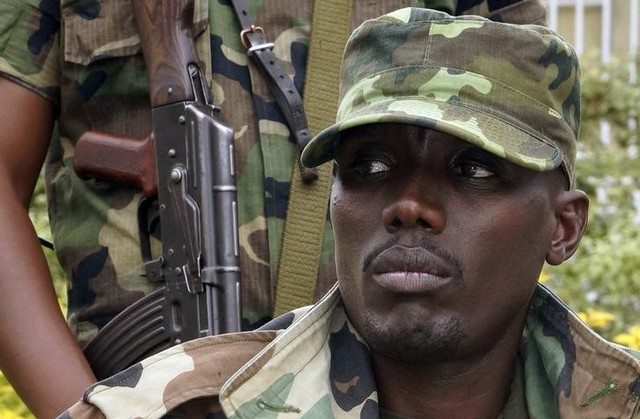Ex-Congo rebel leader missing, gunfire erupts in border town


By Reuters
Congo has stepped up army patrols in its volatile east after the former military chief of a once-powerful rebel group vanished from a camp for demobilised fighters in neighbouring Uganda and gunfire erupted outside an important border town.
Julien Paluku, governor of Democratic Republic of Congo’s North Kivu province, said Ugandan authorities no longer knew the whereabouts of Sultani Makenga, who was the military chief of the M23 rebellion.
“We were in contact with the Ugandan intelligence services who confirmed that, since Friday, ex-Colonel Makenga may have fled and the Ugandan services have not been able to locate him,” Paluku told Reuters on Saturday.
An official with M23’s political wing declined to comment and referred questions about Makenga to the Ugandan authorities. A Ugandan army spokesman said he did not know whether Makenga had disappeared but would seek to confirm his whereabouts.
A Congolese customs official in Bunagana said gunfire had erupted overnight in the hills around the town, an important border crossing to Uganda that was once an M23 stronghold. Shooting continued sporadically into Saturday morning.
“We didn’t know where it was coming from. We woke up in panic,” said the official. “We don’t know what’s happening, the military is telling us nothing.”
The official, who declined to be identified as he was not authorised to speak to the media, said there was increased military activity in Bunagana as well as a growing presence of Ugandan soldiers across the border in the town of Kisoro.
Paluku said there was no confirmation Makenga had returned to Congo but added that there had been reports of unidentified troops in North Kivu’s Sarambwe Nature Reserve, adjacent to the border.
“There’s a maximum alert. Our troops are carrying out combat patrols so that, if it turns out it’s true, they will proceed to neutralise (Makenga) along with any allies who might be accompanying him on this adventure,” the governor said.
Until its defeat in 2013, M23 was the strongest of dozens of armed groups that have continued to control large swaths of mineral-rich eastern Congo despite the end of the 1998-2003 war.
The area remains a tinder box of ethnic and political divisions.
At its peak, M23 seized North Kivu’s capital Goma but following its defeat by U.N. and Congolese troops, many of its fighters fled into Uganda and Rwanda. They have since lived in military-run camps awaiting amnesties promised under a peace deal.
Uganda said in 2014 that it was hosting 1,430 former M23 fighters. However, many have since left the camps and there have been persistent rumours that the rebels were seeking to regroup.
U.N. investigators said the group, accused of war crimes by rights campaigners, was supported by Rwanda – a charge Kigali has repeatedly denied.